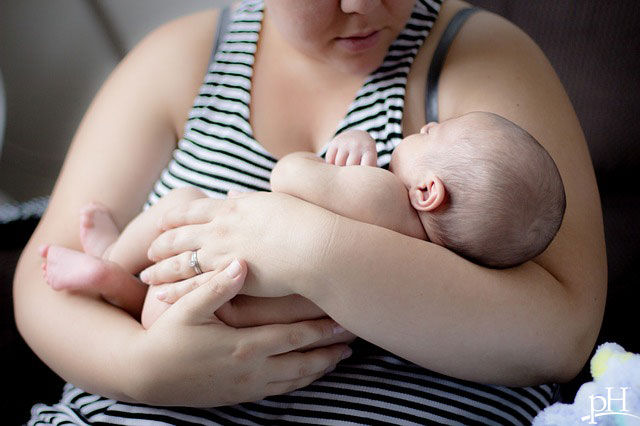Can obesity in parents affect childhood development?
9 years ago | Family Health
By pH health care professionals
More than a third of U.S. adults are considered obese. Approximately 1 in 5 pregnant women in the U.S. begin their pregnancy with a BMI of 30 or higher (the standard for obesity). Concerns have been raised about the way a mother’s obesity affects her baby’s development due to inflammation during prenatal brain development, metabolic disorders, micronutrient insufficiency, hyperglycemia (high blood sugar), and abnormal development of the serotonin system (important for mood balance).
Prior research has linked maternal obesity with developmental difficulties, such as an increased risk for an autism diagnosis, but the effects of paternal obesity weren’t studied or accounted for, until now. A recent study published in Pediatrics is the first U.S. study to account for both maternal and paternal obesity. Parents completed the Ages and Stages Questionnaire when their children were 4, 8, 12, 18, 24, 30 and 36 months old, screening five areas of development including fine motor, gross motor, communication, personal-social functioning and problem-solving ability.
Here’s what the study found:
-
Children of obese mothers (BMI 30 or higher) were more likely to fail the fine motor test.
-
Children of obese fathers were more likely to fail the social test.
-
Children whose parents were both obese were more likely to also fail the problem-solving test.
This means having an obese parent or parents may be associated with delays in early childhood development. Specifically, maternal obesity was associated with delays in fine motor development and paternal obesity was associated with delays in personal-social functioning.
So, should you lose weight before having a baby?
Parents who are proactive about their body composition can not only improve their own health, but help get their child off to a healthy start too. To begin your weight loss journey, read our recommendations here. If you are already pregnant and you are obese, talk to your doctor about steps you can take to safely manage your weight and promote a healthy and happy pregnancy.
Keep in mind that losing weight too fast (more than three pounds per week) can increase your risk for gallstones.
If you are struggling with weight loss, here’s an approach you haven’t thought of -- minerals. Check out our new book featuring an entire chapter that can help! Find it here.
Enjoy Your Healthy Life!
The pH professional health care team includes recognized experts from a variety of health care and related disciplines, including physicians, health care attorneys, nutritionists, nurses and certified fitness instructors. To learn more about the pH Health Care Team, click here.







